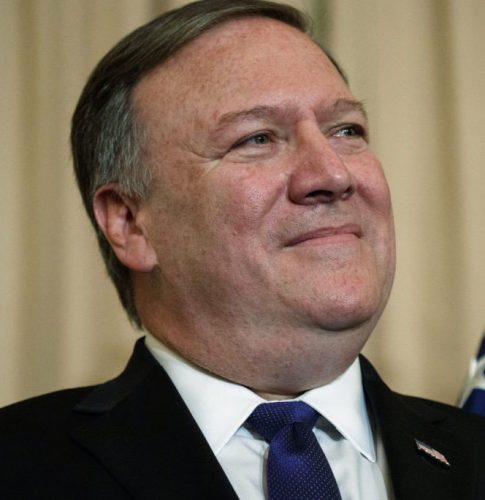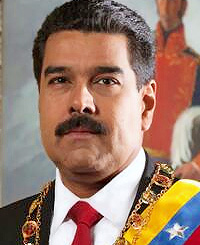U.S interests in Latin America and the Caribbean are diverse and include economic, political, security, and humanitarian concerns. Geographic proximity has ensured strong economic linkages between the United States and the region, with the United States being a major trading partner and source of foreign investment for many Latin American and Caribbean countries. Free trade agreements (FTAs) have augmented U.S economic relations with 11 countries in the region.
The Western Hemisphere is a large source of U.S immigration, both legal and illegal; geographic proximity and economic and security conditions are major factors driving migration trends. Curbing the flow of illicit drugs from Latin America and the Caribbean has been a key component of U.S relations with the region and a major interest of Congress for more than four decades. The flow of illicit drugs, including heroin, methamphetamine, and fentanyl from Mexico and cocaine from Colombia, poses risks to U.S public health and safety. Since 2000, Colombia has received support through Plan Colombia and its successor programs. For over a decade, the United States also has sought to forge close partnerships with other countries to combat drug trafficking and related violence and advance citizen security. These include the Mérida Initiative, begun in 2007 to support Mexico; the Central America Regional Security Initiative (CARSI), begun in 2008; and the Caribbean Basin Security Initiative (CBSI), begun in 2009.

Another long-standing component of U.S policy has been support for democratic governance and the rule of law. US policy efforts have long supported democracy promotion, including support for strengthening civil society and promoting human rights and the rule of law.
Increasing Challenges in the Region
Over the past several years, the quality of democracy has eroded in a number of countries, along with public satisfaction with how democracy is working. Venezuela has descended into a dictatorship under President Nicolás Maduro, and Cuba and Nicaragua are also ruled by authoritarian regimes repressing the political opposition.

Other countries have experienced social unrest fueled by such political factors as fraudulent elections, weak democratic institutions, politicized judicial systems, public corruption scandals, high levels of crime and violence, and the effect of organized crime on state institutions.
Economic factors such as declining or stagnant growth rates, high levels of income inequality, and increased poverty have also increased social pressure. Protests that racked a number of countries in 2019 could reemerge in 2020, given that many of the underlying conditions that fueled unrest in the region persist.
Trump Administration Policy
Under the Trump Administration, U.S relations with Latin America and the Caribbean have moved toward a more confrontational approach from one of engagement and partnership during past Administrations. In 2018, the State Department set forth a framework for U.S policy toward the region focused on three pillars for engagement — economic growth and prosperity, security, and democratic governance. The framework reflects continuity with longstanding U.S policy priorities for the region, but it also appears at odds with the Administration’s sometimes antagonistic actions and statements on immigration, trade, and foreign aid. According to Gallup and Pew Research Center polls, negative views of U.S leadership in the region have increased markedly during the Trump Administration.
Foreign Aid
The Administration’s proposed foreign aid budgets for the region would have cut assistance levels by more than a third in FY2018 and FY2019 and by 30% in FY2020. Congress essentially rejected those requests by providing significantly more assistance in appropriations measures, but in 2019, the Trump Administration withheld some assistance to the “Northern Triangle” countries of Central America (El Salvador, Guatemala, and Honduras) to compel their governments to curb the flow of migrants to the United States. The FY2021 request of $1.4 billion would cut aid to the region by 18%, but a large proposed aid increase to support a potential democratic transition in Venezuela masks significantly larger cuts for many countries and programs.
Trade
In 2017, President Trump ordered U.S withdrawal from the proposed Trans-Pacific Partnership (TPP) FTA negotiated in 2015 by 12 Asia-Pacific countries; the TPP would have increased U.S economic linkages with three Latin American countries that were parties to the agreement – Chile, Mexico, and Peru. The President who strongly criticized the North American Free Trade Agreement (NAFTA) with Mexico and Canada, repeatedly warned that the United States might withdraw from the agreement, and initiated renegotiations in 2017. The three countries agreed in 2018 to a new United States-Mexico-Canada Agreement (USMCA), which retained many of NAFTA’s provisions and included modernizing features and new provisions on the auto and dairy industries.
Mexico, Central America, and Immigration
Relations with Mexico have been tested because of inflammatory anti-immigrant rhetoric and immigration actions that have shifted the burden of interdicting migrants and offering asylum to Mexico. In 2017, the Administration announced it would end the Deferred Action for Childhood Arrivals program; begun in 2012, the program provides relief from deportation for certain immigrants who arrived as children. The program’s future remains uncertain, given challenges in federal court. In 2018, Mexico’s President agreed to allow the United States to return certain non-Mexican migrants to Mexico (pursuant to Migrant Protection Protocols) while awaiting U.S immigration court decisions.
Other Administration actions on immigration have caused concern in the region. In 2017, the Administration announced plans to terminate Temporary Protected Status (TPS) designations for Nicaragua, Haiti, El Salvador, and Honduras, but federal court challenges have put the terminations on hold.
Unauthorized migration from Central America has increased in recent years, fueled by difficult socio-economic and security conditions and poor governance. To deter such migration, the Trump Administration implemented a “zero tolerance” policy toward illegal border crossings in 2018 and restrictions on access to asylum at the U.S border. The Administration has used aid cuts of appropriated assistance and threats of increased U.S tariffs and taxes on remittances to compel Central American countries and Mexico to curb unauthorized migration to the United States.
In 2019, the Administration negotiated “safe third country” agreements with each of the Northern Triangle countries to permit the United States to transfer asylum applicants from third countries to the Northern Triangle countries.
Venezuela, Cuba, and Nicaragua
As the situation in Venezuela has deteriorated under the government of President Maduro, the Trump Administration has imposed targeted and broader financial sanctions, including sanctions against the state oil company, the country’s main source of income. In January 2019, the Administration recognized the head of Venezuela’s National Assembly, Juan Guaidó, as interim President. In September 2019, the United States joined 11 other Western Hemisphere countries to invoke the Rio Treaty to facilitate a regional response to the Venezuelan crisis. The Administration also is providing humanitarian and development assistance for Venezuelans who have fled to other countries, especially Colombia, and for Venezuelans inside Venezuela.
On Cuba, the Trump Administration has abandoned the policy of engagement advanced during the Obama Administration and imposed a series of economic sanctions on Cuba for its poor human rights record and support for the Maduro government in Venezuela. Economic sanctions have included restrictions on travel and remittances, efforts to disrupt oil flows from Venezuela, and authorization (pursuant to Title III of the LIBERTAD Act, P.L. 104-114), of the right to file lawsuits against those trafficking in confiscated property in Cuba. In 2017, the State Department cut the staff of U.S Embassy Havana by about two-thirds in response to unexplained injuries of U.S diplomatic staff.
Since political unrest began to grow in Nicaragua in 2018 against the government of President Daniel Ortega, the Trump Administration has employed targeted sanctions against several individuals due to their alleged ties to human rights abuses or significant corruption.
Congressional Action in the 116th Congress traditionally has played an active role in policy toward Latin America and the Caribbean in terms of both legislation and oversight. Given the region’s proximity, U.S foreign and domestic policy often overlap, particularly in areas of immigration and trade.
The 116th Congress completed action on FY2019 foreign-aid appropriations when it enacted the Consolidated Appropriations Act, 2019 (P.L. 116-6) in February 2019. Amounts appropriated for key U.S initiatives and countries exceeded the Administration’s request by almost $600 million. Congress completed action on the FY2020 foreign aid budget in December 2019 when it enacted the Further Consolidated Appropriations Act, 2020 (P.L. 116-94), with amounts for key countries and regional programs once again significantly exceeding the Administration’s request.
In February 2020, Congress began consideration of the Administration’s FY2021 foreign aid request. In January 2020, Congress completed action on implementing legislation for the USMCA (P.L. 116-113). Before legislative approval, the agreement was amended to address congressional concerns regarding provisions on labor (including enforcement), the environment, dispute settlement, and intellectual property rights.
On Venezuela, in December 2019, Congress enacted the VERDAD Act of 2019 in Division J of P.L. 116-94, which, among its provisions, codifies several sanctions and authorizes humanitarian assistance and support for international election observation and democratic civil society. The measures incorporate provisions from S. 1025 and three March 2019 House-passed bills: H.R. 854; H.R.920, and H.R. 1477. In July 2019, the House also approved H.R. 549, which would provide Temporary Protected Status (TPS) to Venezuelans.
Editor’s Note
This ‘article’ is a significantly abbreviated reproduction of a report authored by the US Congressional Research Service. It has been edited to take account of what, in the judgment of the editors, are the priority interests of readers of the Guyana Review insofar as relations between the US and the rest of the Hemisphere are concerned.
The CRS has specifically advised that the information contained in the report (including the section published in the Guyana Review) “should not be relied upon for purposes other than public understanding of information that has been provided by the CRS to the Congress.”
The original Report was last updated on March 11, 2020.






